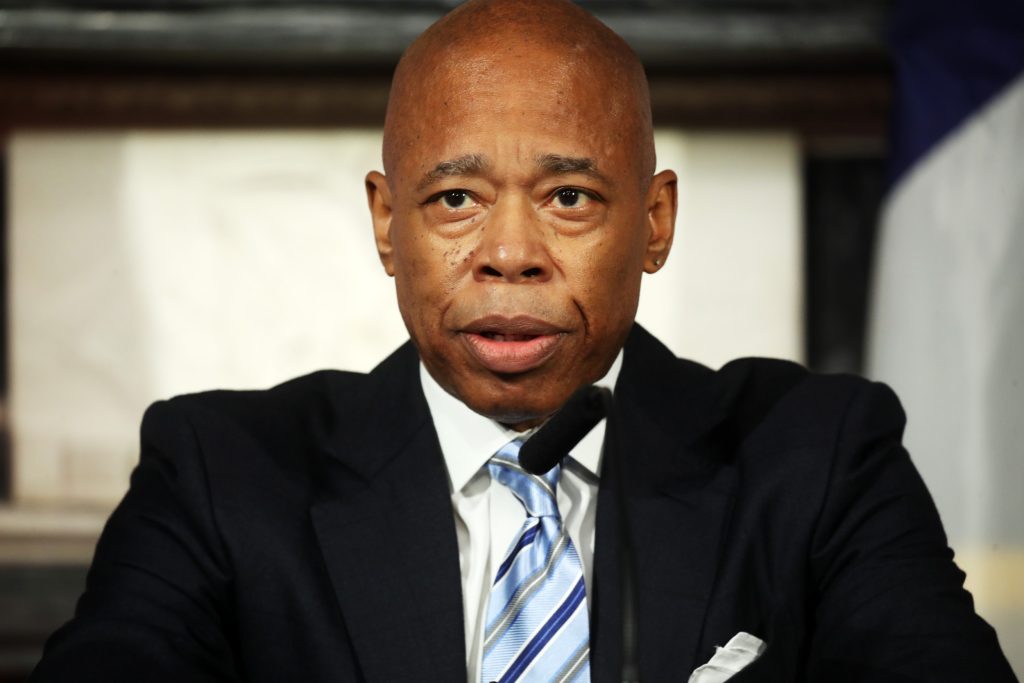New York City Mayor Eric Adams has been indicted by a grand jury following a federal corruption investigation, making him the first sitting mayor in the city’s history to face a criminal indictment. The nature of the charges is still unclear as the indictment remains sealed, with further details expected to be revealed on Thursday. Adams released a statement asserting his innocence and vowing to fight the charges with all his strength. He also expressed his intention to request an immediate trial so that New Yorkers can hear the truth and rejected calls for his resignation, asking for the public’s prayers and patience. Adams suggested that he was being targeted because he started speaking out for all New Yorkers.
A federal subpoena was issued in July to obtain information from Adams, his campaign, and City Hall, eight months after FBI agents confiscated the mayor’s phones and iPad as he left a Manhattan event. Adams has not indicated any intention to resign despite mounting calls for him to do so from various political figures and organizations. Former Mayor Bill de Blasio expressed shock and concern for the city but emphasized the importance of the presumption of innocence until guilt is proven. Several top figures in the Adams administration have also been targeted in federal corruption investigations, with phones confiscated from the mayor’s schools chancellor, two deputy mayors, and a senior adviser overseeing migrant shelter contracts. Police Commissioner Edward Caban resigned his position for the good of the city and the New York City Police Department.
Democratic Congresswoman Alexandria Ocasio-Cortez joined the chorus of voices calling for Adams to resign, citing the flood of resignations, vacancies, and nonstop investigations that threaten governance in the city. Calls for Adams to step down have also come from city and state lawmakers, with the New York Working Families Party urging him to resign because he has lost the trust of the everyday New Yorkers he was elected to serve. Despite the growing pressure, Adams has maintained that he will not resign, leaving open the possibility of a special election to replace him should he change his mind. In the interim, the city’s public advocate, Jumaane Williams, would take his place as acting mayor. The situation surrounding Mayor Adams is still developing, and further updates are expected.
The announcement of Mayor Adams’ indictment came shortly after he attended a reception at the Metropolitan Museum of Art with President Joe Biden, Secretary of State Antony Blinken, and other officials. Adams has framed the investigation against him as a targeting of his efforts to advocate for all New Yorkers, without providing evidence to support his claim. The decision to indict a sitting mayor is a significant development in New York City’s political landscape, raising questions about the potential impact on governance and public trust in leadership. The sealed indictment and ongoing investigations into various city officials indicate a broader pattern of corruption and ethical issues within the administration.
The challenges facing Mayor Adams come as a blow to his tenure and threaten to destabilize his ability to lead effectively. The presence of corruption allegations and ongoing investigations cast a shadow over his administration and raise doubts about his capacity to govern in the best interests of New Yorkers. The mounting calls for his resignation reflect a growing lack of confidence in his leadership and the need for a change in leadership to restore integrity and transparency within city government. As the situation continues to unfold, the future of Mayor Adams’ term remains uncertain, with the possibility of a special election looming if he decides to step down. The outcome of the legal proceedings and the extent of the corruption allegations will determine the course of action and the implications for the city’s governance.












